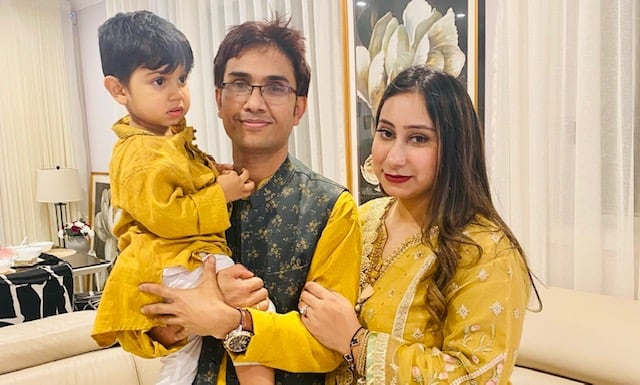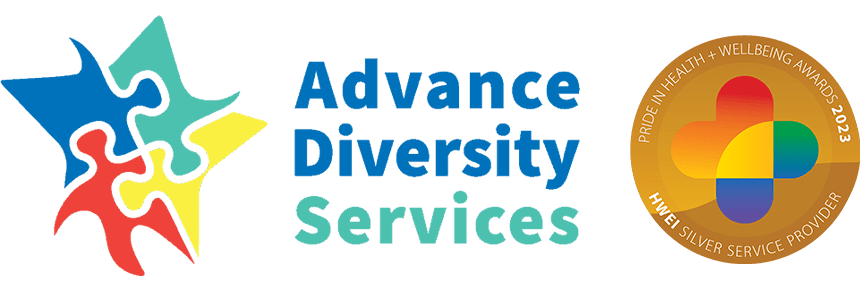Arabic and Bangladeshi parents and parents-to-be are finding support and encouragement thanks to a free parenting program run by Advance Diversity Services in partnership with South Eastern Sydney Local Health District (SESLHD).
Becoming Us, created by Australian parenthood and relationship expert Elly Taylor, lays the early groundwork for teamwork parenting, and helps couples recognise their important roles as partners and not just as parents.
‘Ninety-nine per cent of my female clients arrive on spouse visas and often do not have any of their own family here,’ says ADS Community officer and Bangladeshi bicultural worker Tasneem Rashid.
‘Their spouses work and the expectation within the couple and family is that the mother should be the main parent. Young mothers at home often feel isolated and parent alone.
‘The stress of being in a different culture, navigating in a different environment, with a young baby, without family and friends support, can feel overwhelming for young mothers, who can become emotional, especially if they feel they can’t control their children.
‘Our program helps these women and their partners navigate the new systems in Australia, and introduces and connects them to services and other newcomers to build community support.’
Tasneem Rashid and Fatima Sayed from ADS, and Rubina Huq, Cross Cultural Worker for SESLHD all trained with Ms Taylor in April 2021 to become Becoming Us facilitators and have since offered sessions to communities.
Participants in ADS’s free, online Bangladeshi sessions in November included 11 women and four men representing 11 families – six pregnant women, four expecting first baby, two expecting their second (but first in Australia) and another couple with a one-week new-born baby.
The Arabic sessions in early December have also attracted participants who arrived in Australia on spouse visas and face the challenges of parenting young children.
Rubina Huq, co-facilitator for the sessions says ‘The “gold” for new parents is learning that relationships change post baby and we have to work hard at our relationship and differences. Staying connected means learning how to talk and listen to each other respectfully.
‘Also sharing personal experiences in this group, including post-natal depression and other challenges, normalises many of the difficult situations couples and families experience, and gives you the sense that you are not alone’ she added.
Ms Huq says strategies discussed in Becoming Us include self-care – a crucial component given that one in six new mothers and one in ten new dads experience post-natal depression.
Intimacy during the transition to parenthood is another sensitive topic broached.
‘In Bangladeshi culture, mum shares a bed with the newborn baby, and dad moves to another room, where he can have a peaceful sleep because he is usually the bread earner. But participants agreed that this is not always healthy as an ongoing situation, and couples don’t realise the creeping stress related to this situation.
‘In the Becoming Us sessions, attendees talked about the importance of displaying more intimacy and affection in front of baby, and how important and healthy it is to visit each other’s rooms once or twice a week.’

Parenting challenges ‘universal’
ADS community worker Fatima Sayed is excited about co-facilitating the sessions for Arabic participants in early December with Rubina Huq.
‘The women attending the workshop are all under 30 years old, mothers with young infants, who are very keen to learn useful information about parenting and who understand the importance of professional guidance.
‘Sharing experiences with first-time parents in the same situation, and with others with older children will also help ease stress and anxiety and normalise the challenges. Challenges are universal!’
Ms Sayed explained that newly arrived Arabic women are expected to be the stay-at-home parents and look after the children. And, while they often have in-laws nearby, it is not the same as having the support of their own families.
‘Many Arabic-speaking women express that when they have babies, they lose freedoms such as being able to study or learn English because there is no one to look after the children.
‘Breastfeeding and other responsibilities also make it overwhelming to schedule themselves, so they stop interacting with people, even in online sessions, becoming more isolated.’
Ms Sayed said workshop content about intimacy needed to be approached in a culturally appropriate and respectful way.
‘We don’t really talk openly about sex and intimacy especially in front of men in a group setting. The local Arabic community is connected, so people know each other. It would be disrespectful to speak about your partner in front of a group.’
Team Leader Magdaline Shenton-Kaleido said ADS had first been introduced to Ms Taylor’s parenthood program through another joint partnership with SESLHD for a Positive Parenting program for Nepalese families in 2018.
Ms Taylor had also been a guest speaker at the February meeting of St George Child and Family (C&F) interagency, chaired by Child and Family Interagency Facilitator Lisa Stephenson.
When a pilot opportunity to train community facilitators to deliver the Becoming Us program arose, ADS was keen to be involved and teamed up with long-term collaborator Helen Rogers, the SESLHD Early Parenting Program Coordinator, to roll it out.
Ms Shenton-Kaleido said, ‘Once the new facilitators received the Becoming Us materials, we had numerous planning meetings as well as peer-to-peer support meetings with other C&F interagency partners participating in the pilot, in order to share best practice and tailor our sessions to our communities and target groups.’
Ms Sayed said she loved what she’d learned and got a lot from the training.
‘One thing that stuck with me was a simple example Elly gave about having realistic expectations of your partner. She said, “Don’t expect your partner to read your mind and to know that you need a glass of water while breastfeeding. You have to ask for it!”’
